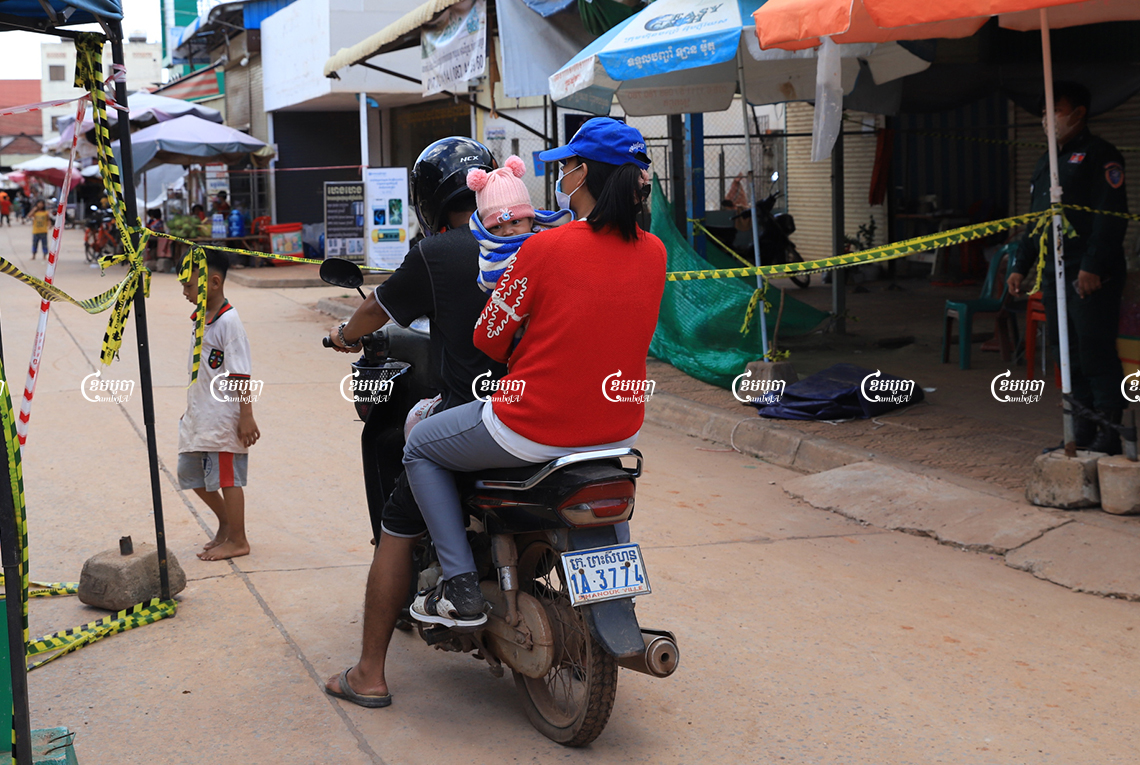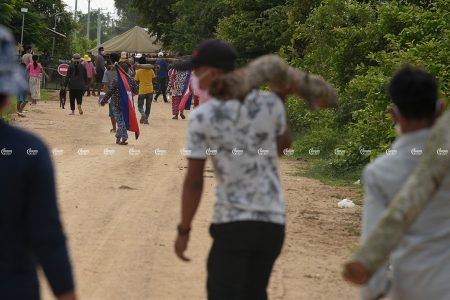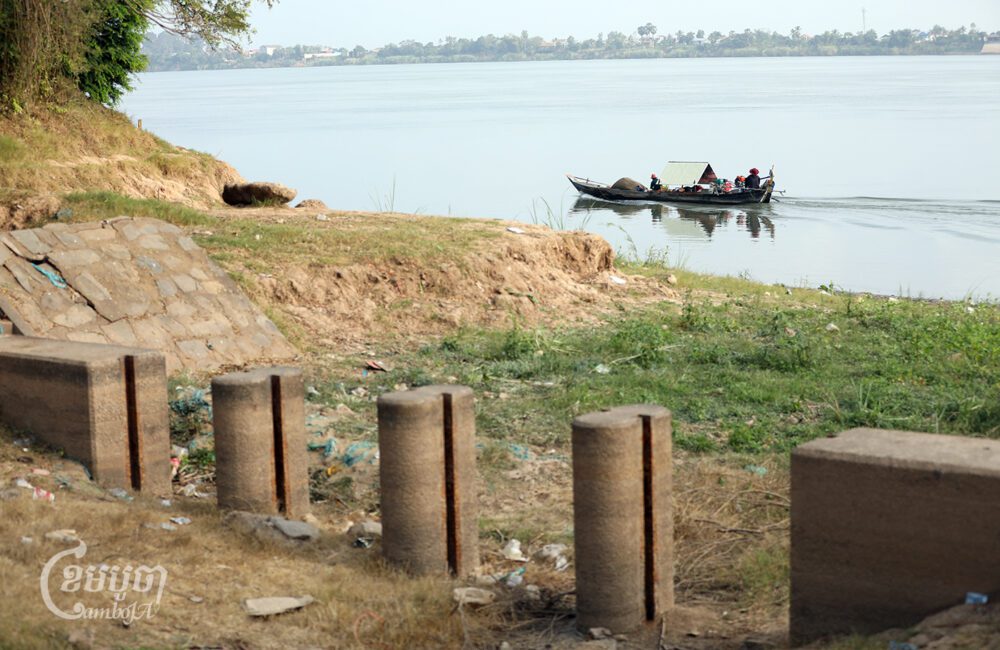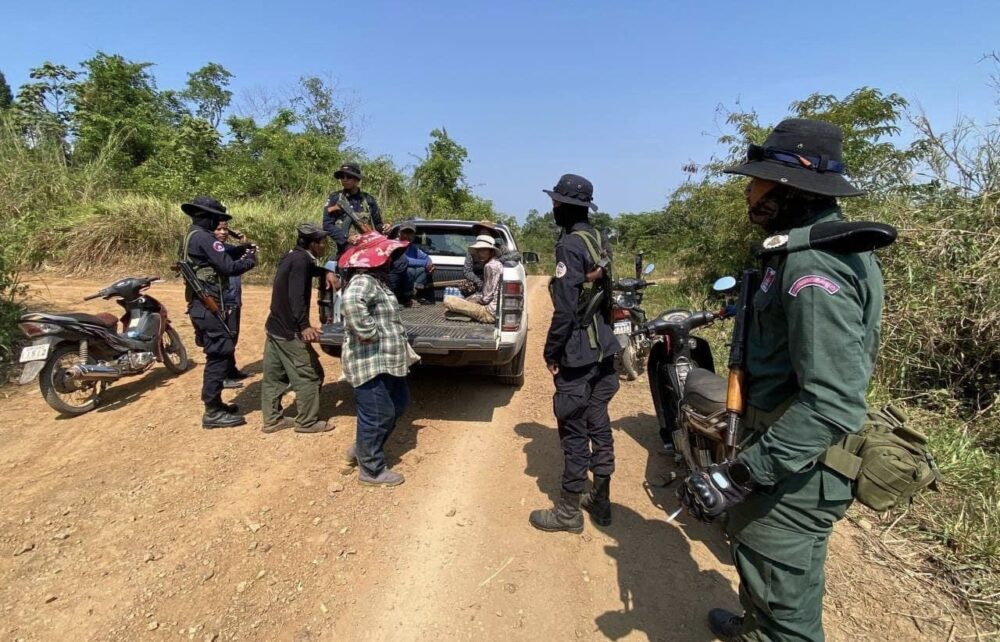Six restaurant owners and managers in Siem Reap have been arrested and sent to pretrial detention as part of an investigation into the community outbreak of COVID-19 in early June this year. The accused were charged with having disregarded anti-COVID-19 measures, allegedly causing the virus to be transmitted to others on July 24 and July 25.
According to detention warrants issued by the provincial court and seen by CamboJA, four people including San Chhengky, 37, the owner of Piphup Thmey Thammacheat Restaurant in Kakoh village, Kork Thloak Krom commune, and Prak Saran, 47, the restaurant’s manager, as well as Leang Kea, 40, the owner of Sabay Sabay Restaurant, and Kea’s wife and restaurant co-owner Tang Malis, 37, were charged on July 24 with disregarding administrative measures causing COVID-19 to be transmitted to others. In a separate case, An Satha, 35, owner of Heng Heng Bakheng 2 Restaurant and Say Laska, 33, the restaurant’s manager, were detained the following day.
Provincial court spokesperson Yin Srang confirmed that a number of suspects had been arrested and sent to pre-trial detention.
“They were charged with disregarding administrative measures causing the COVID-19 disease to be transmitted to others under the law on measures to prevent COVID-19 outbreak … and other serious diseases,” he said. Srang added that he was not sure how many people had been arrested and charged under the legislation since the February 20 community outbreak.
Siem Reap’s provincial administration has put in place measures to prevent the spread of COVID-19, including the temporary closure of all alcohol-related gatherings and adult entertainment centers. In a post on its Facebook page on July 25, the provincial administration announced that individuals who violate these preventive measures will be punished according to the law.
The arrests follow a police investigation into the cause of a community outbreak in Siem Reap’s Chi Kreng district in early June. Two areas of Siem Reap city were declared red zones after more than 140 people tested positive for the virus following the outbreak, including a number of police officials who had dined at Piphup Thmey Thammacheat Restaurant.
On July 22, just days before the owners and managers were arrested, provincial police brought in four suspects for questioning about the alleged illegal running of Piphup Thmey Thammacheat Restaurant and Sabay Sabay.
Siem Reap authorities are calling on all business owners to follow the provincial administration guidelines to prevent the spread of COVID-19.
“May all business owners join to cooperate with the government and all levels of authorities to eradicate COVID-19 from the community, which will restore our social economic situation,” a post on the provincial administration’s Facebook page read.
If they are found guilty under the anti-COVID-19 legislation, they will face between six months to three years in prison and a fine of between two million riel [about $500] and ten million riel [about $2,500].
Ly Samreth, deputy governor and spokesman of Siem Reap province, told CamboJA that as of yesterday, the total number of people in the province who had been infected with COVID-19 was 3,819, of which 1,978 had recovered and 40 had died.
Yong Kim Eng, executive director of the People Center for Development and Peace, told CamboJA that the arrest and imprisonment of shop owners in Siem Reap was not fair, suggesting that police officials involved in the initial outbreak should come under more scrutiny.
“Officials should be punished immediately, not just the people, and if officials are not strictly enforced, problems will continue,” he said.
Kim Eng said that if the restaurant owners had violated the measures of their own accord, they should be punished according to the law.
“[But] if officials ordered them to open a restaurant so they could drink and drink, those officials should be punished,” he said.
San Chey, the executive director of the Affiliated Network for Social Accountability, said that the authorities should study the details about the case to find out whether the owners’ had kept their restaurants open despite the restrictions due to financial difficulties caused by the pandemic.
“Authorities should pay attention to the economic and psychological damage and burden of the people,” he said.
He said that at the moment, some people were forced to continue operating their businesses despite the high risk of COVID-19 infection due to their limited livelihoods.
“I think that the authorities should study the main reason and impact, whether they could have the opportunity of understanding,” he said. “If they were educated but they still abuse, [the authorities] have to implement it based on the legal measures.”
On Monday, the Ministry of Health reported 778 new cases of COVID-19 including 475 imported cases , bringing the total count to 73,701 since the pandemic began in early 2020. The large majority of these cases have been recorded since February 20, when the ongoing community outbreak began in Cambodia. The ministry has also recorded 65,950 recovered cases and 1,305 deaths from the virus.









